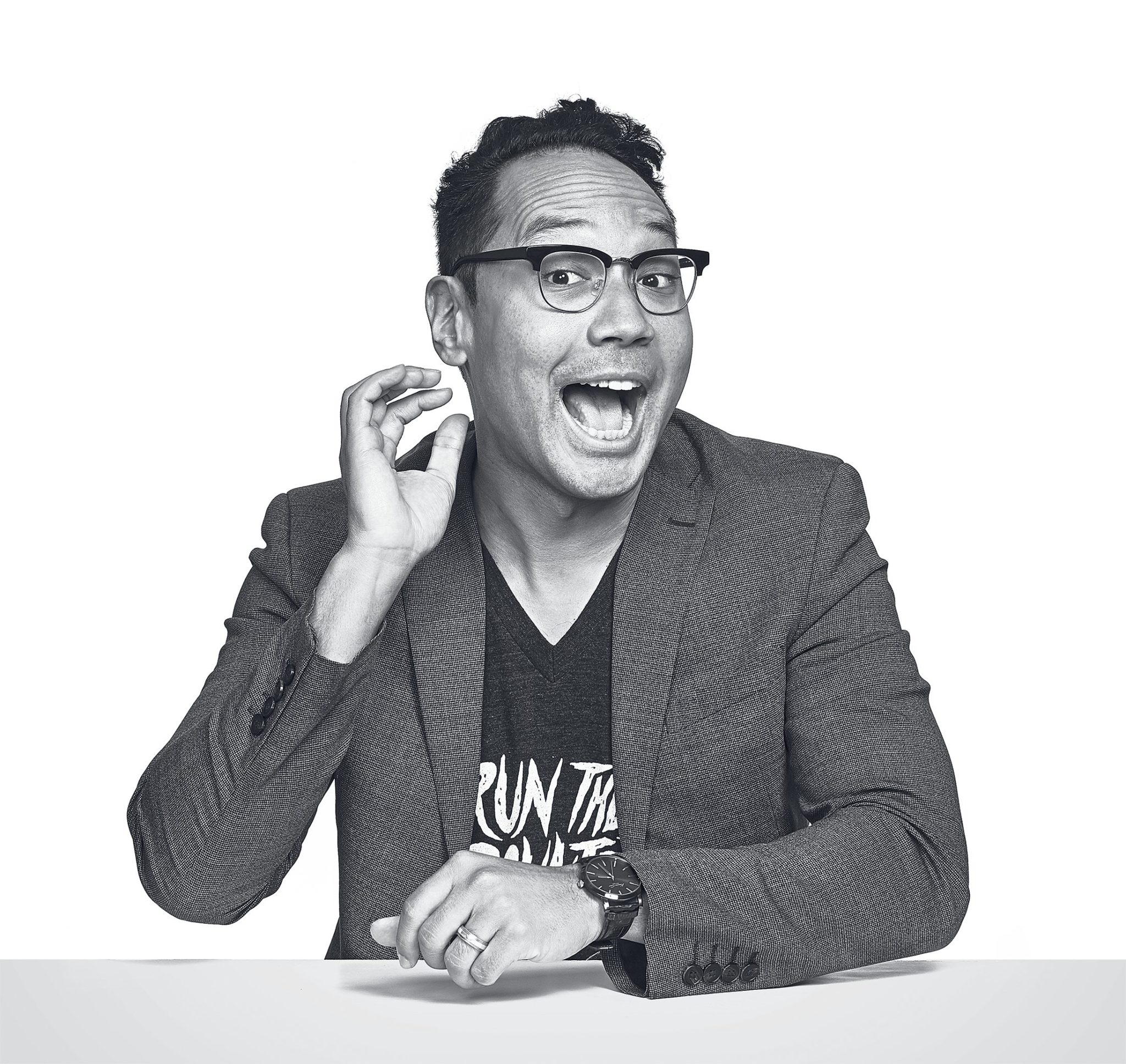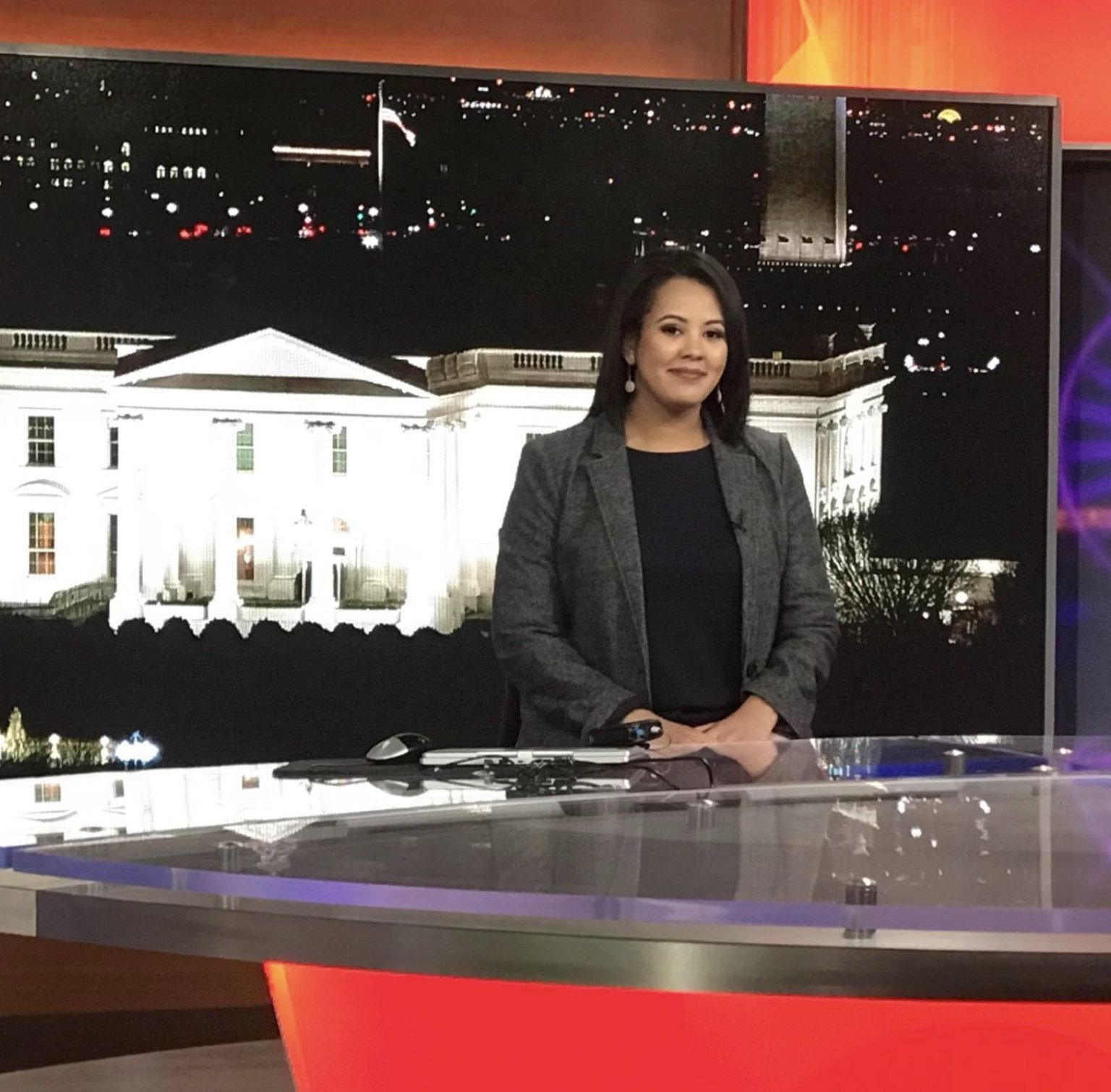Back when he worked in the Obama administration, Brad Jenkins probably wouldn’t have shown up to work wearing jeans, sneakers, and a T-shirt emblazoned with the cartoon heads of Bernie Sanders and Atlanta rapper Killer Mike. But his outfit is hardly the only thing that’s changed: Instead of liaising with thought leaders as an associate director in the White House Office of Public Engagement, Jenkins has recently been serving as executive producer of the DC arm of Funny or Die, the digital humor platform cofounded by Will Ferrell.
Why does a viral-video factory need a Washington bureau? Funny or Die now also operates an extensive branded-content business, and in the DC office, Jenkins—along with former Obama speechwriter David Litt—has used humor to help Planned Parenthood, UNICEF, and other organizations get their messages out.
Now Jenkins is leaving Funny or Die to launch his own creative agency, Enfranchisement Productions. To find out more about the intersection of humor and politics, we met up with him at Funny or Die’s office, which is tucked into the corner of a coworking space near the White House.
After the White House, why was Funny or Die the place you wanted to go next?
What I learned at the White House is that Americans don’t get their information the way we did a generation ago—or even ten years ago. Our team could spend weeks or months [getting the word out about] a white paper that the National Economic Council or the Council on Environmental Quality prepared. But young people weren’t reading the white papers. They were sharing crying memes from Keeping Up With the Kardashians. They were listening to podcasts. I felt I could engage more effectively through entertaining content.
So how do you make policy entertaining?
We first try to think of what’s going to make people smile and laugh. The White House was doing a big push for increasing the minimum wage. Funny or Die recruited Kristen Bell, and she did a whimsical video as Mary Poppins. We wanted to try and reach a demographic beyond just advocates.
Leaving the White House, I had a newfound appreciation for figuring out ways where you’re taking off your “D” or “R” hats. Because as soon as you come in wearing a hat or a color, people aren’t going to listen.
Have you ever come across a subject that didn’t work with your approach?
There’s never been an issue we’ve worked on where we couldn’t find humor. We’ve done campaigns for the Physicians Committee for Responsible Medicine, which is the largest think tank for vegans. You would think vegans are the least funny people in the whole world.
It’s definitely not the sexiest subject.
It’s not! A plant-based diet is really not funny. They also have a reputation for not being funny and being critical of those who aren’t vegan. We did a hilarious video with [rapper] Waka Flocka Flame. We did a video this past year for dairy farmers talking about GMO labeling—so that is not funny on its face. We put together a really charming video that got millions of views. With the right writers, execution, and obviously the right performers, anything can be funny.
How does this kind of thinking apply to political campaigns? Let’s say you’re hired by a 2020 presidential candidate—whichever candidate you want.
In a make-believe world? Beto, for sure.
Okay, Beto O’Rourke hires you as, say, chief humor strategist. What do you tell him?
That comedy is just a tool in the toolbox, but it’s a tool that people should be wielding a lot more. One thing I’d say to every candidate running for 2020 is that you and your staff members have a full movie-studio production capability in the palm of your hands with an iPhone. That’s what Beto did: He turned driving 40 minutes to Laredo into [a lot of] people just watching him drive. It costs zero dollars, and it builds a sense of community.
Nothing against the Kardashians, but they’re not solving our country’s biggest problems every day. Yet we’re following their lives as if they are because they’re telling their story in such a compelling way. They’re showing their flaws, they’re letting you see their world. Beto did that on the campaign trail. These 2020 candidates, they have to figure out their version of that.
Anything else?
Being self-aware is critical. I see a misstep with first-time candidates where they try to force the funny. You do not have to use the tool if it doesn’t come naturally. Leave the comedy to professionals. Be self-aware and self-deprecating. Obama’s best jokes came at his own expense. One of my favorite jokes was from [his 2014 appearance on the Funny or Die–produced web series] Between Two Ferns. [Host] Zach Galifianakis asks him, “What is it like to be the last black President?” Which is just a great line.
You’re starting a new company, Enfranchisement Productions. What will it do?
A lot of what I was doing at Funny or Die DC, but with Enfranchisement we’ll tell stories that are not just comedy—inspirational stories, working with candidates and influencers and organizations.
Why that name?
It’s an inside joke. When I started volunteering for Barack Obama in 2007, there were a half a dozen young hopey, changey people, and we called ourselves “enfranchisement express.” I also thought about what the word means. We’re an agency that is about storytelling and entertaining, but ultimately our goal is to do good. All of our creative will be about empowering people.
A lot of people think DC is one of the least funny places in the country.
The “Death of Comedy”?
Yes, people do sometimes say that’s what DC stands for. Is it easier to be funny here or to be political in Los Angeles?
Now I think bringing comedy to DC is easier because of who the President is. Whether you agree or disagree with his policies, his presidency has been defined by dividing the country, and I think that is antithetical to artists. They really do believe they speak for communities that don’t have a voice, that are being marginalized or are vulnerable. So there’s a huge pushback to Trump.
Trump may be divisive, but . . . .
“Horse face”? I’m not sure—is horse face divisive or not? I don’t know.
But leaving that aside, can he be funny?
Yeah, he can be funny. I mean, I think he’s an entertainer first, to be honest. If you’ve seen one of his rallies, there is a lot of laughter. We are an attention economy; whoever has the attention has the power. When he was running in the primary, he had to figure out a way to hack the system, where all the attention was on him all the time. What did he do? He just started name-calling, right? Name-calling, depending on how you look at it, is entertaining. “Little Marco” is a hilarious nickname.
I must admit I did laugh.
I laughed, too. It’s awful to admit. “Low-Energy Jeb” is a hilarious nickname. When Donald Trump was elected, there was this fear I had that he was going to so degrade the office of the President and government that young people would become apathetic. They would be like, “It doesn’t matter if I vote. Both sides are corrupt.” You hear this a lot with young people. There’s this kind of both-sides-ism: Everyone’s dirty, everyone’s corrupt, everyone’s just doing the bidding of special interests. I’ve been in this town ten years. I can tell you it’s the exact opposite. The people who do this for a living, they believe in this. What I wanted us to do in the era of Trump was continue to be hopeful—continue to laugh.
This article appears in the January 2019 issue of Washingtonian.




















